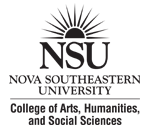Article Title
Co-Adventurers in Discovery: Collaborative Research Between Undergraduate Students and Faculty
Document Type
Article
Abstract
There are many opportunities available beyond the classroom for undergraduate students to engage in cutting-edge scholarship. Some of the opportunities include study abroad, internships, and independent study. We strongly suggest that students experience such programs. Independent study courses can serve not only to sharpen the student’s engagement skills with the open-ended questions of current research, but also to enhance his or her own relationship with faculty. In this article we share the experiences of a biology student and a mathematics faculty member coming together as co-adventurers learning from each other about the mechanisms and mathematics involved in cardiac arrhythmia through collaborative mathematical modeling research. Biology and mathematics have a long history of an explosive synergy that enriches and extends both fields (Cohen, 2004) (Reed, 2004), and this synergy led us to the fruitful journey reported here. As there is no end in sight for opportunities to engage in such multi-disciplinary student-faculty collaborative research, we encourage everyone to take advantage of such opportunities.
Recommended Citation
Murugan, Rajeswari and Haskell, Evan
(2012)
"Co-Adventurers in Discovery: Collaborative Research Between Undergraduate Students and Faculty,"
Quadrivium: A Journal of Multidisciplinary Scholarship: Vol. 4:
Iss.
1, Article 11.
Available at:
https://nsuworks.nova.edu/quadrivium/vol4/iss1/11

Author Bio(s)
Rajeswari Murugan is a biology major at the college with minors in mathematics and chemistry. She is dually admitted into NSU’s College of Osteopathic Medicine and is part of the Undergraduate Honors Program. Murugan also serves as a member of The President’s 64 elite organization at NSU. Her additional leadership roles at the university include head lab assistant for General Chemistry courses, peer leader for the college’s Academic Society Program, vice president of Rotaract, and former secretary and pledge class president of Alpha Phi Omega. She is also an active member of the Pre-Medical Society, Clinic Exploration Program, and the Emerging Leaders Certificate Program. Murugan’s research experiences include mathematical modeling of cardiac arrhythmogenesis and cytotoxicity studies on prostate cancer cells at the Rumbaugh–Goodwin Institute for Cancer Research.
Evan Haskell, Ph.D., associate professor at the college, is an applied mathematician who earned his Ph.D. from the Courant Institute of Mathematical Sciences at New York University. Prior to arriving at NSU, Haskell was a member of the cognitive neuroscience sector of the International School for Advanced Study in Trieste, Italy, and the mathematics departments at University of Utah and College of William and Mary. Haskell has published numerous scholarly articles on developing and analyzing models of large-scale neuronal networks.